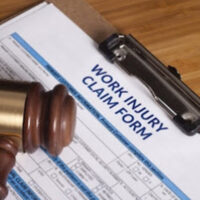Can You Receive Workers’ Compensation Benefits If You Were At Fault For Your Accident?

Florida’s workers’ compensation system was designed to protect the rights of workers who sustain injuries at work or develop occupational diseases. However, employers benefit from having workers’ compensation insurance, too.
The workers’ comp system protects employers from personal injury lawsuits. Yes, the system prohibits injured employees from filing a liability lawsuit against their employers. But what do you get in return?
In most cases, workers are eligible for compensation even when the accident was their fault, though there may be exceptions. If you are worried that your workers’ compensation claim will be denied because you are at fault for your injury, contact a lawyer. Our attorneys at Kobal Law will help you protect your interests throughout the workers’ compensation claims process.
Is Florida’s Workers’ Compensation System a No-Fault System?
Yes, the workers’ compensation system in Florida is a no-fault system. It means that employees who were injured on the job or developed work-related illnesses do not need to prove anyone’s fault to be entitled to compensation.
Thus, you can receive workers’ compensation benefits even if you were at fault for your accident. Fla. Stat. § 440.09 provides that injured workers are entitled to workers’ comp as long as their injury occurred “in the course and scope of employment.”
However, there are a few notable exceptions to Florida’s no-fault system.
Exceptions to Florida’s No-Fault Workers’ Comp Insurance System
While an injured employee’s fault does not matter in the vast majority of workplace accidents, there are some exceptions to the general rule. In Florida’s your workers’ compensation claim may be denied if any of the following is true:
- You were under the influence of alcohol at the time of the accident
- You were impaired by drugs at the time of the accident
- You deliberately got injured to obtain workers’ comp benefits
If any of the above is true, your employer’s workers’ compensation insurance company will have legitimate grounds to deny your claim.
Proving That Your Injury is Related to Work
As mentioned earlier, you need to prove that your injury arose out of employment in order to be eligible for workers’ compensation benefits in Florida. It is advisable to seek the assistance of a knowledgeable workers’ compensation attorney to help you prove that your injury is work-related.
You are entitled to compensation as long as you can prove that your injury occurred while you were performing your official duties. In fact, you are entitled to compensation even if your injury occurred while working from home.
However, you cannot receive workers’ compensation benefits if your injury occurred when you were commuting to or from work.
You Need a Tampa Workers’ Compensation Attorney
If you were injured at work, you need an experienced attorney to help you file a workers’ compensation claim and ensure that you are fairly compensated for your losses. Our attorney Jason Kobal in Tampa is prepared to help you fight for fair and full compensation on your behalf.
You are entitled to maximum compensation even if you were at fault for your injuries. However, the insurance company may attempt to devalue or deny your claim if the accident is your fault. For this reason, you need a Tampa workers’ compensation attorney to protect your rights during the claims process. Call 813-873-2440 to receive a case review with our lawyer at Kobal Law.
Resource:
leg.state.fl.us/statutes/index.cfm?App_mode=Display_Statute&URL=0400-0499/0440/Sections/0440.09.html
